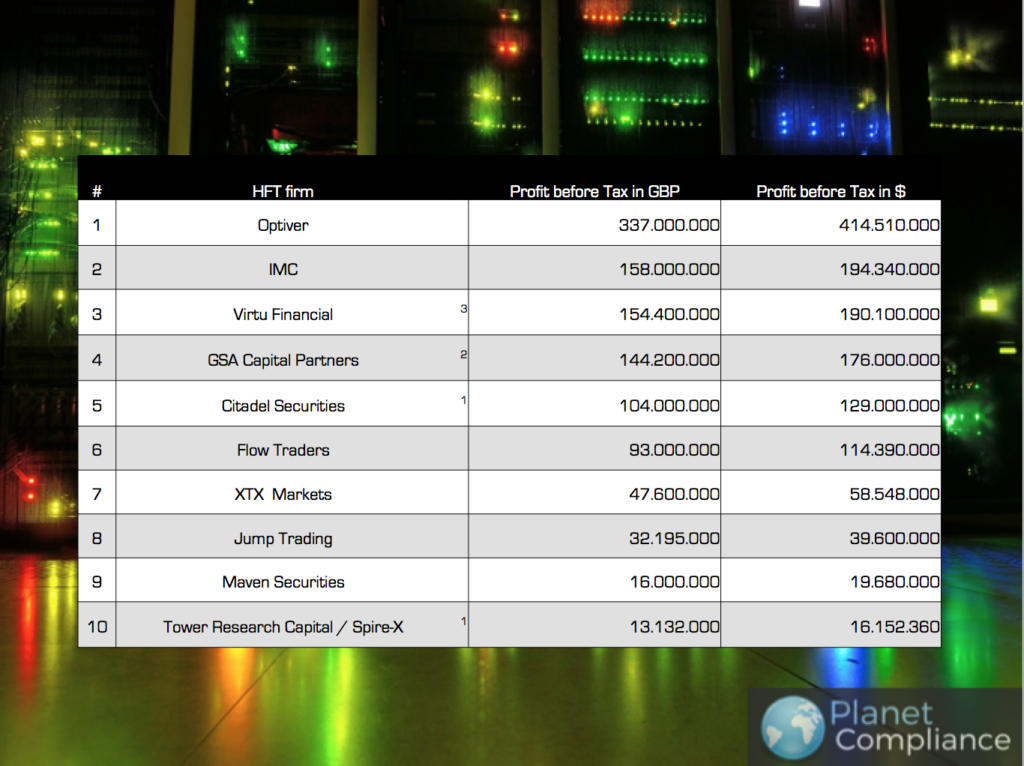High-Frequency Traders often are very secretive people when it comes to numbers. However, every now and then something comes out, either through company announcements or through company fillings, for example, of the UK and European branches.
We’ve researched and analysed everything we could get our hands on and came up with the following ranking of the 10 HFT firms with the highest profits. Please note though that the numbers are always in respect to the last year annual accounts were due or available, i.e. in most cases the most recent filing was towards the end of last year with numbers regarding the previous year. Also, since some numbers are in respect of the UK subsidiaries, they account only for a part of the overall profits these firms made, which are likely to be significantly higher. We leave it to you to make your own calculations for these cases, but it should be a good indication as to the profitability of these companies operating in the HFT space.
1 Profit before tax for UK arm
2 Profit on ordinary activities after tax
3 Profit before tax for 2014
Please note that we have not considered banks like JP Morgan or Barclays that are very active in the HFT space, but since this is only a small part of their operations, it would be very difficult to provide comparable numbers. Also, this list does not contain some big names for which we couldn’t find any data. Just so you know.
If you want to know more about the HFT industry and the key players, check out our dedicated post here.
